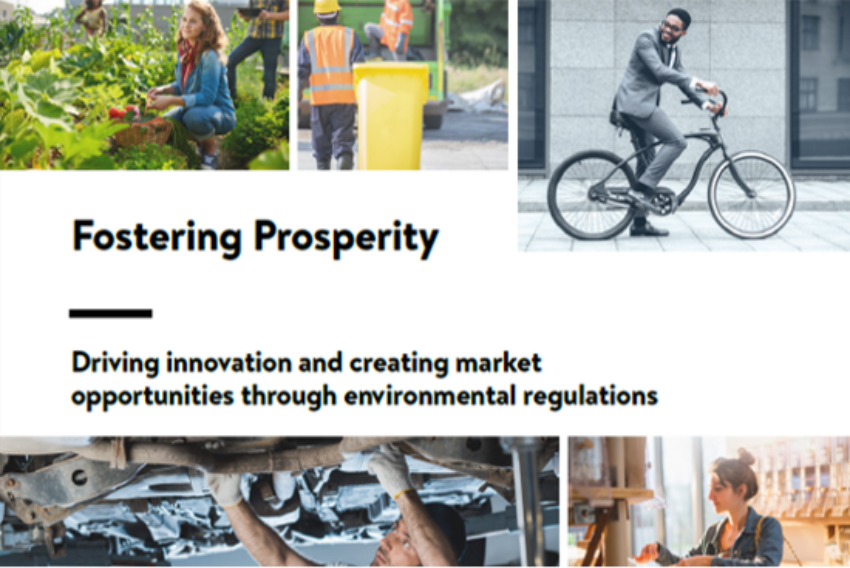REPORTS & BRIEFINGS | 02/03/2021
Fostering Prosperity: Driving innovation and creating market opportunities through environmental regulations

Good environmental regulation must be forward-looking and underpinned by clear and ambitious targets which tighten over time.
The UK has set commendable objectives on the climate change and environmental agenda. In addition to its net zero emissions target by 2050, the UK is committed to overturning the decline in the natural environment within a generation, significantly improving the resource efficiency of its economy and embarking on a green economic recovery following the COVID-19 crisis. Good regulation will have a critical role to play in achieving these ambitions and ensuring that the transition to a net zero emissions and environmentally restorative economy comes with the development of new market opportunities, growing supply chains and job creation.
This is why the Aldersgate Group commissioned Buro Happold to do a detailed review on the effectiveness and economic implications of past and existing environmental regulations, identify the key characteristics of good environmental regulation and draw out lessons which can help guide future UK policy making. We were particularly interested in understanding how environmental regulations can best be designed going forward to help achieve the UK’s climate and environmental goals in a way that also supports business investment in innovation, supply chain growth, skills, job creation and contributing to the levelling up challenge.
This report – which focuses on evidence drawn from the construction, waste and automotive sectors – finds that environmental regulations have generated significant economic as well as environmental benefits to date which have outweighed initial compliance costs. Building on a detailed literature review as well as interviews with 16 business leaders, it finds that environmental regulations in these sectors has resulted in accelerated business innovation, the creation of new market opportunities and corresponding benefits in terms of supply chain growth, job creation and skills. In the building sector, the London Plan, which establishes requirements for improving the sustainability of developments, supported over £100 million in investment in heat networks, solar PV installation and carbon offsets during 2018. Similarly, the Landfill Tax has been a net positive job creator for the waste sector, and estimations suggest that a more resource efficient economy will generate the creation of a further 500,000 jobs. The transition to electric vehicles will also generate around 30,000 new jobs by 2030, and leverage around £3bn of private investment in the automotive sector.
This decade presents a huge opportunity for the UK, both in terms of making significant progress against its climate and environmental targets but also in terms of diversifying its economy, growing new supply chains and supporting the creation of high-quality jobs across the country. Ambitious, well-designed and properly enforced environmental regulations and market mechanisms will be vital to this.
Joan Walley, Aldersgate Group chair 2015 – 2021


